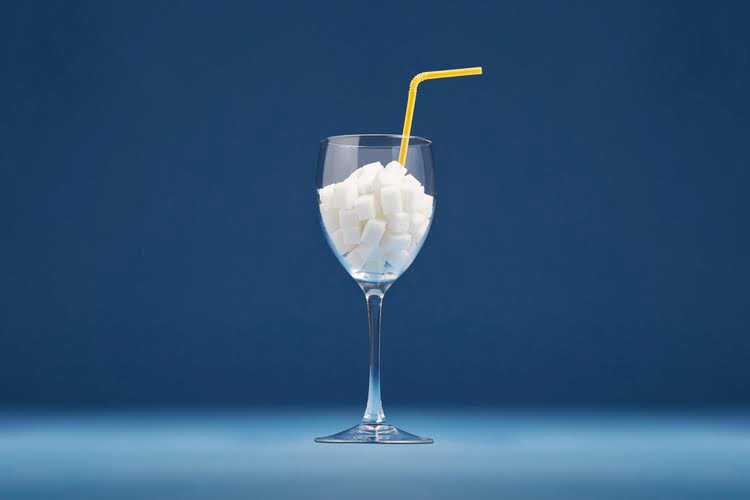Expressing gratitude has been shown to enhance relationship dynamics, making individuals more positive towards their partners and more comfortable expressing relationship concerns. By acknowledging and appreciating the support and love received, individuals in recovery can nurture their relationships and foster a deeper sense of connection. Particularly in early recovery, gratitude helps individuals navigate challenging times, counterbalance overwhelming emotions, and shift their attention towards the progress they have made. Support groups and peer mentors provide ongoing encouragement and accountability. Sharing stories of gratitude and success helps normalize gratitude as a powerful recovery tool.
By recognizing positive aspects such as health, progress, and supportive relationships, individuals develop a hopeful outlook that fuels perseverance. Linking gratitude practices to improved recovery outcomes is straightforward. A person who regularly practices gratitude is likely to experience less stress, fewer negative emotions, improved mood, stronger relationships, and a greater sense of purpose and optimism. These factors collectively contribute to increased resilience, better coping skills, and a stronger motivation to stay sober. They reinforce the idea that life in recovery is not just manageable, but can be fulfilling and joyful. The connection between gratitude and well-being isn’t just anecdotal; it’s supported by a growing body of scientific research.
Improves Communication
- Moreover, gratitude has been shown to increase self-esteem and reduce social comparisons.
- Gratitude doesn’t just influence emotional well-being; it also contributes to physical health.
- They permeate social interactions, strengthening interpersonal relationships vital to recovery.
- Many individuals struggle with feelings of trauma, comparison to others, and self-doubt, which can overshadow feelings of appreciation.
- However, gratitude is essential for anyone in recovery or working to get sober.
Moreover, gratitude enhances physical health by making individuals feel lighter, more relaxed, and hopeful, leading to overall well-being and a healthier lifestyle 2. By cultivating gratitude, individuals can strengthen their bonds and foster a sense of belonging and support. Gratitude has emerged as a vital component in recovery processes, offering psychological, emotional, physical, and social benefits. This article explores the multifaceted role of gratitude in recovery, supported by scientific research, therapeutic strategies, and practical applications that can transform the journey toward wellness. Gratitude plays a significant role in enhancing mental health and nurturing relationships during the recovery journey. It is closely linked with reduced symptoms of depression and anxiety, which are common challenges for individuals in recovery.
The benefits of a holistic approach to addiction treatment
Moreover, gratitude has been shown to increase self-esteem and reduce social comparisons. When you’re focused on being thankful for what you have, it’s easier to appreciate your self-worth – rather than constantly comparing yourself to others. The simple answer is that gratitude can help you reframe your mindset to focus on the positive aspects of your life. In doing so, you can begin to see all the good that’s happening rather than dwelling on the negative. Use some simple ways mentioned in this article to foster feelings of gratitude in your life.
Deepens Emotional Connections
As I navigated my way through addiction recovery, I discovered the incredible power of gratitude. In this section, I will discuss the various ways in which gratitude can aid in addiction recovery. We’ll explore how practicing gratitude can help us overcome negative thinking patterns and view our situation with hope and positivity. We’ll also delve into how expressing gratitude can help alleviate the stress and anxiety that often accompany addiction recovery. Finally, we’ll explore how cultivating a thankful mindset can serve as a powerful force for positive change, inspiring us to take action towards our recovery goals. Practicing gratitude through activities like journaling, expressing appreciation to others, or mindfulness techniques reduces common recovery stressors such as anxiety and depression.
Overcoming Challenges to Maintain a Grateful Attitude
Gratitude can help you cope with challenges, reduce stress, and improve your mood. With this article, we hope to give you a better understanding of how this happens and help you in your recovery. The Four A’s of gratitude—appreciation, approval, admiration, and attention—serve as foundational components to cultivate a grateful mindset, especially important during recovery. By nurturing gratitude, AA encourages members to embrace emotional stability, enhancing the possibility of lasting recovery. Addiction can rule a person’s drug addiction life, as getting and using the drug or drink of choice can dictate actions large and small.
- Furthermore, gratitude can help individuals rebuild damaged relationships and motivate them to give back through acts of kindness.
- Practicing gratitude offers numerous healing benefits for both mental and physical health.
- Being grateful for the person’s sobriety, their efforts in treatment, small acts of kindness, or moments of connection can help soften hardened feelings and open the door to forgiveness and renewed hope.
- This acknowledgment helps to rebuild trust and strengthen bonds, creating a more nurturing environment.
- However, the recovery community has known the power of gratitude for a long time.
It opens the door to positive emotions and promotes an optimistic outlook, essential qualities for maintaining sobriety. When gratitude becomes a routine, it supports ongoing emotional healing and reinforces social connections through acts of appreciation and generosity. Keeping a gratitude journal is a common practice that helps individuals refocus their thoughts.
Start Practicing Today
These practices help manage cravings, regulate emotions, and reduce stress and anxiety—common hurdles in recovery. For example, a simple 5-minute breathing exercise like the technique calms the nervous system and increases focus. Engaging in creative activities like making gratitude lists, creating gratitude boards, or even artistic expressions can make the practice of gratitude more enjoyable. Activities like mindful cooking or journaling allow people to appreciate the little things in life while helping to cultivate a positive mindset.
It shifts focus from past regrets or resentments to positive interactions, reinforcing social bonds and creating supportive environments that uphold long-term sobriety. One inspiring story comes from a former addict who credited her gratitude journal with a significant shift in her recovery journey. By recording just three things she was thankful for each day, she noticed a profound change in her mood and resilience against cravings.
Moreover, gratitude boosts motivation to stay sober by reminding individuals of their achievements and the support they have received. It supports emotional regulation, decreases stress, and fosters a sense of purpose. Talking about what one is thankful for, either publicly or privately, reinforces positive feelings and encourages a supportive environment.
Expressing Gratitude to Friends, Family, and Support Systems
Most everyone has heard the question, “Is the glass half empty or half full? ” This simple question illustrates the difference between being grateful and not being grateful. When we walk through life and see everything that is wrong, everything that isn’t going our way, everything that we wish was different, we will continue to see more and more of the same. These little things, when appreciated, can add up to a life filled with joy and gratitude. Even if you stay in gratitude in recovery the same job, you may find that your job performance and productivity improve.
Drugs and alcohol can take a severe toll on the body and brain, and an overdose can leave a user permanently disabled or dead. Not everyone gets a “second chance” at life, so it is important to be grateful for your opportunity. Choosing to stop using addictive substances and actively work toward recovery is a positive step. But it can be derailed quickly by those hopeless, negative thoughts and the actions that go with them. Trapped in that mindset, an addicted person might think that there’s no point in trying to recover, because they’ll always use again. By integrating gratitude into our programs, we help patients build a strong foundation for lasting recovery.








